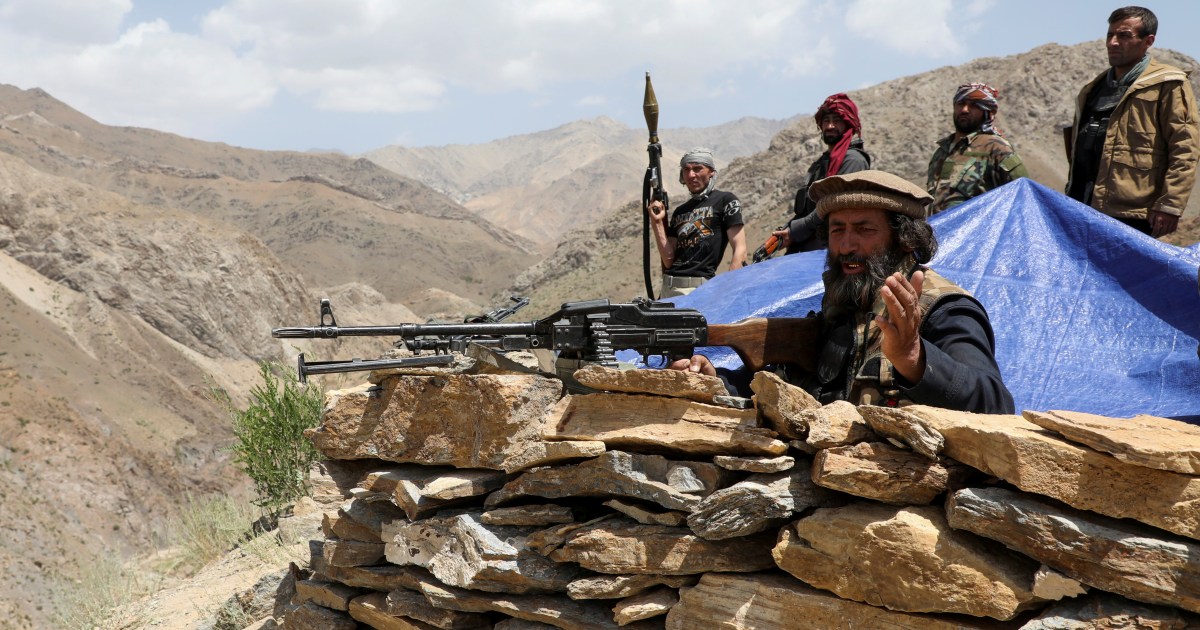The Russian news agency quoted an advisor to Afghan President Ashraf Ghani as saying - on Monday - that the Afghan government forces intend to launch a counter-attack in the country's northern provinces after losing areas to the Taliban movement.
Hamdullah Mohib, the Afghan National Security Adviser, told the agency - in an interview - that the government forces did not expect the Taliban attack, but that they would "of course and certainly" launch a counterattack.
The Afghan Interior Ministry announced the killing of a military official and 35 Taliban militants in Farah province, in the west of the country.
And local media reported - the day before yesterday, Saturday - the killing of the secretary of the governor of Kandahar province and his security guard in an explosion targeting the headquarters of the governor of the southern Afghan province.
The local Tolo News channel quoted unnamed sources as saying that the secretary of the governor of Kandahar and his security guard were killed in the explosion of an explosive device planted in a car park at the governor's headquarters.
High frequency of violence
For his part, Afghan Parliament Speaker Mir Rahman Rahmani said that the pace of violence in Afghanistan increased after the withdrawal of US forces, and considered that the Taliban's control of a number of districts is a dangerous precedent that must be addressed.
Rahmani appealed to the movement to preserve government buildings and infrastructure as the property of the people and not the government, as he put it.
The Afghan parliament speaker also expressed his surprise at the postponement of the peace negotiations in Doha for unjustified reasons after the withdrawal of US forces.
In turn, the commander of US forces in Afghanistan, Austin Miller, expressed his concern about the rapid loss of areas to the Taliban movement in Afghanistan.
In an interview with ABC, Miller added that he did not want Afghans to lose hope at a time when the Taliban were moving across the country, and noted that Afghanistan's future did not look good if there was a tendency to control militarily.
An Afghan government official told Al Jazeera that the consulates of Iran, Pakistan, Turkey and Uzbekistan were closed after the situation deteriorated in the north of the country, while the US embassy in Kabul said it would continue to operate in Afghanistan as directed by President Joe Biden, and had no plans to close its doors.
The US embassy indicated - in a tweet on Twitter - that it is confident of its ability to continue to carry out its tasks, and has developed plans to protect the embassy's employees and facilities.
Taliban position
The Taliban said that there are rumors in the media and some regions that its fighters - who control new areas - are imposing restrictions on people, the media and women.
The movement stressed that all schools and educational institutions are working, and the media can broadcast impartially and freely within the limits of Sharia, according to it.
The statement added that clinics and health centers can operate without any conditions, and charities and other institutions can provide free services to people.
In its statement, the movement reassured merchants, investors and businessmen across the country that they and their properties would be safe.
A spokesman for the Political Bureau of the Taliban, Muhammad Naim, said that the Taliban controls more than 70% of the territory in Afghanistan.
Naim added - in a previous publication to Al Jazeera - that the fears expressed by some parties were caused by rumors and allegations made by the enemies, as he put it.
NATO
For his part, a source in the North Atlantic Treaty Organization (NATO) confirmed to the island that the alliance will not set specific dates for the end of the process of withdrawing its forces from Afghanistan.
He added that the withdrawal process will be in an orderly and coordinated manner, based on the decision of the defense and foreign ministers of the alliance taken on April 14, noting that the protection of the alliance forces is currently of paramount importance in light of the rapid progress of the Taliban movement in a number of parts of the country.
He stressed that the training and financial support of the Afghan military and security forces will continue in parallel with the reduction of the military presence of the alliance, in addition to maintaining the diplomatic presence and ensuring the continuation of the work of the international airport in Kabul.
Yesterday, Sunday, Pakistani Prime Minister Imran Khan had a telephone conversation with Iranian President-elect Ibrahim Raisi and discussed the "deteriorating" security situation in Afghanistan with the start of the US withdrawal.
Imran Khan also warned that the recent developments could lead to "serious" repercussions on both Pakistan and Iran, which could lead to an influx of refugees towards the border areas between the two countries.
Both leaders expressed concern about the "grave human rights situation" in Indian-administered Kashmir and Palestine.
The two leaders stressed the need to resolve these long-standing differences in line with UN Security Council resolutions.

